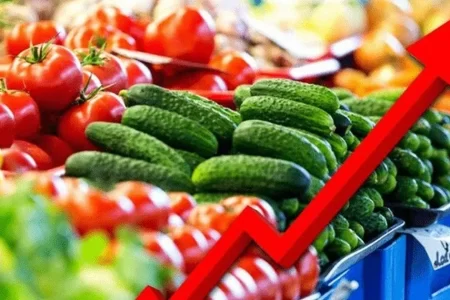Ghanaians are grappling with an escalating food crisis as several essential food items record year-on-year price increases exceeding 50%, according to the latest Consumer Price Index (CPI) report by the Ghana Statistical Service (GSS) due to food inflation.
From ginger and dried pepper to beans and onions, the rising cost of staples is stretching household budgets to the limit, leaving many families uncertain about how to navigate January, a month already known for its financial challenges after the festive season. This illustrates the impact of food inflation on daily life.
The report reveals that ginger tops the inflation chart with a staggering 105.7% year-on-year increase, making it the most affected item. Dried pepper, an indispensable spice in Ghanaian cuisine, follows with a 93.6% increase, while beans, commonly referred to as “gob3,” a lifesaver for many low-income households, has surged by 82.3% due to food inflation.
Other key items with significant price hikes include onions (76.7%), fresh okro (69.6%), and green pepper (64.0%). Imported yam (63.3%), cocoyam leaves (58.4%), palm fruits (56.6%), and imported pork (58.5%) complete the list of food items whose prices have surged past the 50% mark amid rising food inflation.
The timing of this inflation could not be worse. With many Ghanaians spending heavily during Christmas, January is often seen as the toughest month to navigate financially.
Key Highlights of Food Inflation:
- Ginger:7%
- Dried Pepper:6%
- Beans:3%
- Onions:7%
- Fresh Okro:6%
- Green Pepper:0%
- Imported Yam:3%
- Pork (Imported):5%
- Cocoyam Leaves:4%
- Palm Fruits:6%
The rising cost of staples like gob3 ingredients, beans, dried pepper, and onions, has left families struggling to stretch their limited resources. Food inflation has affected even small businesses and food vendors, who depend on these staples for their operations, making it increasingly difficult for them to break even as their input costs soar.
Source: thehighstreetjournal.com

